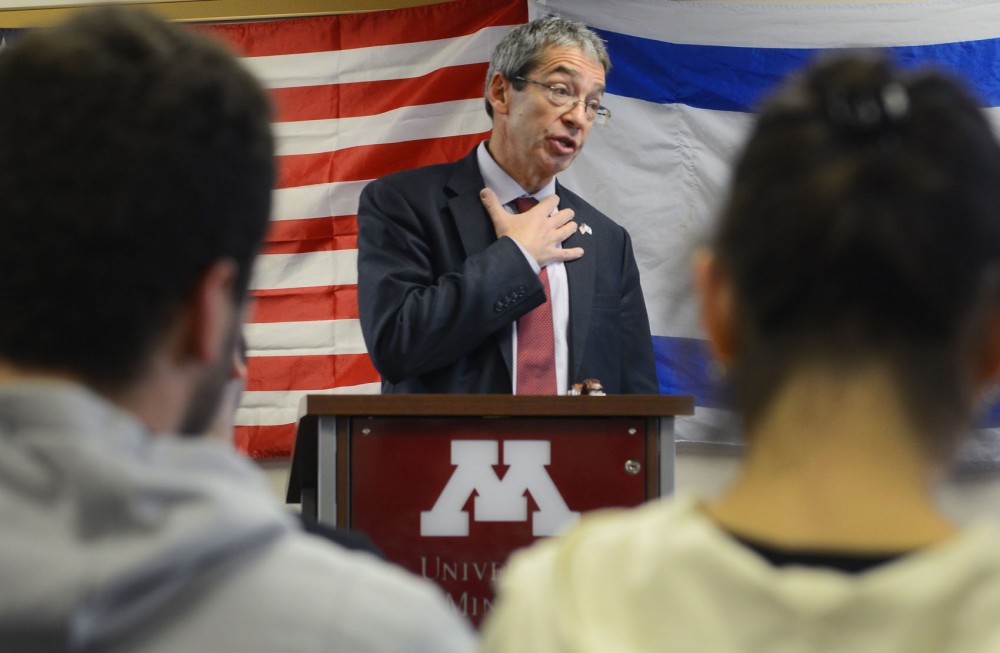Events this week across the University of Minnesota’s campus have highlighted the conflict and connection between Israel and Palestine.
University groups Students Supporting Israel and Students for Justice in Palestine are holding cultural and educational events this week to raise awareness about unrest in Israel.
The events, though planned weeks in advance, come at a time when violence and other controversies in the West Bank stir.
Students Supporting Israel hosted Israel’s consul general to the Midwest, Roey Gilad, on Tuesday at Coffman Union to speak to the group about Israeli foreign policy.
Ron Feingold, president of the University’s chapter of Students Supporting Israel, said Gilad came to recognize the achievements of the group. University students spearheaded the first of many chapters nationwide.
“We felt that Israel didn’t have enough of a voice on campus,” Feingold said about the group’s formation in 2012.
Since its inception, the group has attracted 23 chapters nationwide.
But not all campuses have been as receptive to the group as the University.
Augsburg College’s student government voted not to recognize it as an official student group this fall, but the college’s administration overturned that decision earlier this month.
At Tuesday’s speech, Gilad pointed to a variety of foreign policy issues that Israel is currently facing.
“I think the Palestinians were going through the years with tragedy, but the main reason for [Palestinians’ troubles] is a very poor Palestinian leadership,” Gilad said.
While Students Supporting Israel hosted Gilad this week, Students for Justice in Palestine are holding a variety of events for “Palestine Awareness Week,” one of which is a screening of the film “5 Broken Cameras.”
Other events include Palestine culture night and a discussion on the media’s role in Israel and Palestine.
Avoiding policy, raising awareness
Sara Halimah, a representative for Students for Justice in Palestine, said the group doesn’t view itself as a political entity and directs its focus on raising awareness about Palestine’s culture and humanitarian crises.
“What we want to do is raise awareness of Palestinian culture,” she said, “We try our best to stay away from political advocacy.”
The group doesn’t focus on any policy solutions for the Israel-Palestine conflict because, Halimah said, “there are needs on the ground that can’t wait for years of policy.”
But Gilad said some chapters of Students for Justice in Palestine — not specifically the University’s — might be advocating for a one-state solution, which he said is worrisome and unacceptable for Israel.
Issues regarding Palestine’s sovereignty also sparked discussion on campus with a small, student-led protest near the University’s West Bank campus on Monday evening.
A couple of Students for a Democratic Society members rallied in support of Rasmea Odeh, an activist whose convictions by the United States have drawn criticism from pro-Palestinian activists.
Odeh was found guilty by a Detroit federal court on Monday because she didn’t disclose that when she moved to the U.S. from Israel, she was convicted in 1969 for several bombings.
Courtney Gildersleeve, an SDS member at the protest, said she doesn’t want the U.S. to be a part of efforts that support actions against Palestinians.








